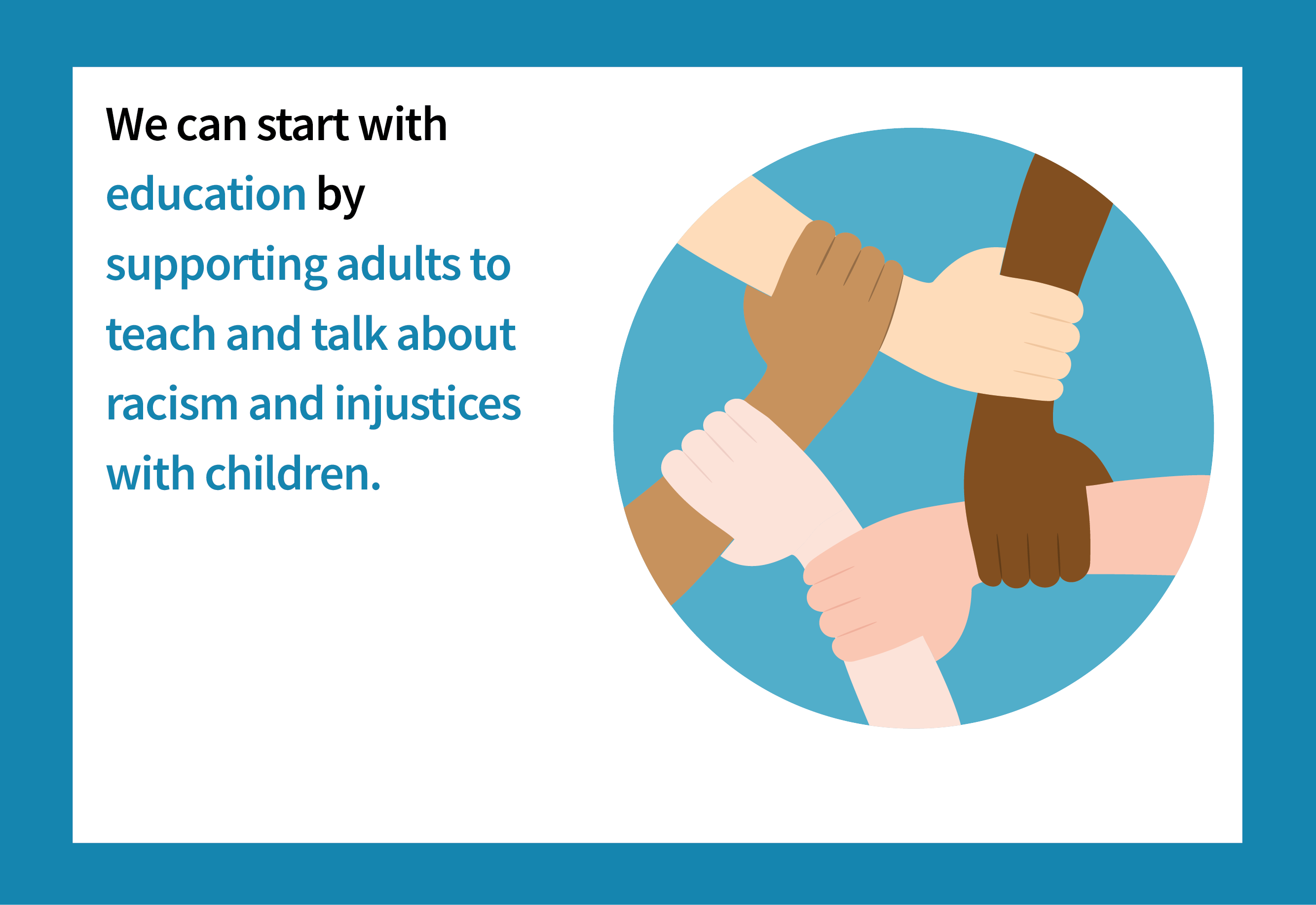Did you know? The recent influx of federal COVID-19 relief funds provides an opportunity to fund early childhood educational mental health supports and services!
State agency leaders and early childhood educators can use infant and early childhood mental health consultation (IECMHC) to meet children’s social and emotional needs during and beyond the pandemic.
To help educators think about how to discuss these cases and other race-related violence and how to support Black students and other students of color who may be distraught by what they read and see in the media, Education Week has compiled some resources from its archives and elsewhere. They include news articles, opinion essays, … Continue reading 16 resources on talking to students about police killings and racism
This recent article from EdWeek describes efforts by teachers of color to address police violence against citizens of color, as well as the pushback received. The teachers interviewed shared their own experiences, concerns for students of color, and desire to help white students participate in systemic change. https://www.edweek.org/leadership/discussing-the-derek-chauvin-trial-in-class-how-teachers-are-doing-it-and-why/2021/04?
This article from Learning for Justice (formerly Teaching Tolerance) addresses the burden placed on teachers of color to support students and lead anti-racist efforts. It also offers suggestions for white educators, stories of white educators who are doing the work, and helpful tips (that white teachers and allies may want to print and post for … Continue reading What white colleagues need to understand
Our Student Behavior Blog team at SRI Education is deeply heartbroken and outraged by the racism, brutality, and hatred that plague Black children, families, and individuals, not only with regard to recent events, but with recognition that these are pervasive issues they face in every moment of their lives. Consistent with our mission statement, we continue to strive to think about how we can conduct research, use data, and develop tools in meaningful ways that will reduce barriers and promote equity for students across our nation who continue to experience these longstanding injustices.
Dr. Michelle Woodbridge (who has been studying prevention and intervention programs related to school-based mental health for more than 25 years) describes school-based clinicians’ perspectives on how using research-supported trauma-informed intervention programs in schools created meaningful, sustainable changes in practice. This video was produced by the 3C Institute. Helpful resources on cognitive behavior interventions can be … Continue reading Clinicians’ perspectives on implementing evidence-based practices
Dr. Carl Sumi, an expert in student behavioral research and interventions discusses positive behavior interventions and supports. This video was produced by the 3C Institute. Additional resources on cognitive behavior interventions can be found on the Cognitive Behavioral Intervention for Trauma in Schools (CBITS) program website. Resources for trauma-informed schools can be found on the Treatment … Continue reading How schools can get started with Positive Behavior Supports








